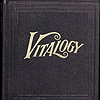Recommendation: 4-Track Digital Recorder?

DirtLikeMe
Posts: 91
I was wondering if anyone had a recommendation for a small digital recorder to be mostly used for guitar demos. Price range is up in the air, but I would prefer something under $200.
Also, any information regarding gear to record demos would be much appreciated.
Also, any information regarding gear to record demos would be much appreciated.
And if hope could grow from dirt like me, it can be done
Post edited by Unknown User on
0
Comments
-
I also wonder about this. I have decided on my recording microphone but still haven't decided on the method. Is a 4 track a viable solution for recording entire songs at pro quality? I know the White Stripes elephant was recorded entirely on an 8 track tape recorder.
Can someone explain the basic setup of a 4 track recorder? Here is my best guess.
Amp---->mic
>4 track
>burned onto a cd
And so if this is the way they work then do most 4 tracks have a digital output for PC or a CD burner incorporated into them? Do 4 tracks have a hard drive to temporarily store the tracks on?
Does 4 track mean what it's name literally implies? You record 4 stereo tracks seperately (into RAM like a computer?) then arrange and record them or output them to PC?
I am interested in this method over the computer method because it seems simpler, like it's all there in one package for you. As apposed to say, the E-MU series of recording soundcards which seem very complicated.
I feel if I had a 4 track all I would need to record a decent sounding song is 4track, mic, guitar/amp, voice, whereas I feel I would need many more preamps and things to record directly to my computer.
If anyone can answer any of my questions that would be sweet cause I am asking alot.
ThanksI miss you already, I miss you always
I miss you already, I miss you all day0 -
http://www.music123.com/Multitrack-Recorders-4-to-12-Track-Digital-d2547.music
that should serve as a starting point. i personally like tascam stuff. it was all i used until i moved to a computer system.
as for gear, a shure SM57 microphone is all you'd really need for guitars. some of these recorders may have some onboard effects that can help polish up tracks. you could get outboard compressors, reverbs etc. but they'll start racking up cost pretty fast.
if you have a decently fast computer available, investigating the software recording route is worth it. the host of software based effects and the fact more tracks are available means that you get a hell of a lot of functionality for relatively little money.0 -
Well, to answer MissYouAllDay's question...
A digital 4-track recorder is an integrated recording system that allows you to record 4 separate signals and mix them to a stereo signal. Some have integrated CD burners (for burning the CD masters, as well as data backup), some have digital outputs (usually lightpipe or digital RCA), and some only have analog outputs. You can still use an analog output into the Line In jack of your computer, and then burn to CD (you would need some program, like WinDAT or Roxio's Sound Editor that comes with Easy CD).
They have some form of drive storage, usually an internal memory supplimented by removable memory (4-tracks usually use a Flash or SmartMedia format). Each unit will differ on the input connections, number of concurrant tracks, and how it records... most 4-tracks feature two 1/4" inputs, and can record up to two tracks at a time, mono. That means you could record a guitar and vocal track together, and then layer in a bass and drum machine, and have your 4 tracks. Unfortunately, with 1/4" inputs, you don't have a good way to connect a professional microphone. Pro mics use an XLR connection, and are low-impedance, low-level signals that require a mic preamp. Some 4 tracks may feature mic pre's, but not many do. You can use a cheap high-impedance Radio Shack-style mic that connects with a 1/4" cable, but your quality isn't very good. The other option is to get some sort of external mic pre, like on a small mixer or just a stand-alone mic preamp, that will convert the microphone's signal to a line signal, and you can connect the mic pre to the 1/4" input.
There are pro albums that have been recorded with 4-track recorders (even the old tape jobs). However, if you want a truly professional sound, you'll want to get either a good 8 to 16 track recorder, OR go with a computer-based system. My personal recommendation is to look at the DigiDesign MBox, a USB interface for computer recording that has really good built-in mic preamps and comes with ProTools LE recording software. Then all you'll need is a decent computer (check their website for specs: http://www.digidesign.com/compato/xp/mbox/) and you're off and running.
As far as a regular stand-alone digital 4-track, I really can't make any recommendations. There might be some other folks on here who can vouch for one model or another, so maybe someone else has a good idea. Good luck!...and if you don't like it, you can suck on an egg.0 -
Get a Zoom PS04Bright eyed kid: "Wow Typo Man, you're the best!"
Typo Man: "Thanks kidz, but remembir, stay in skool!"0 -
Is there anybody on the board that has some qualitative experience with the Digidesign Mbox? After McCreadyisgod suggested it, I read more and now I am pretty interested in buying one. However, I would like to hear what those who have used one think.And if hope could grow from dirt like me, it can be done0
-
DirtLikeMe wrote:Is there anybody on the board that has some qualitative experience with the Digidesign Mbox? After McCreadyisgod suggested it, I read more and now I am pretty interested in buying one. However, I would like to hear what those who have used one think.
i use it. i think it's perfect for solo recording situations. it only has two inputs so it would be rather restrictive for band recording situations but for songwriting/solo recordings, it's ideal. you just need a solid computer to run it on.
the range of effects/tools available will end up teaching you a lot about mixing/engineering as well.
there is so much room to grow using an mbox and protools. i grew out of a 4-track pretty fast back in the day. the digital 8-track i had lasted longer but 32tracks on a computer based system leave me all kinds of room. also, your sessions can be moved to other protools systems meaning collaboration etc. is a lot easier.0 -
You guys are really selling the Mbox eh? It's a little pricey but not compared to the 32 track recorders on musicians friend. I am gonna look into it. I looked at the specs but how fast does your computer need to be to run it fast and what's the key component?
2000+ XP
512 2100 ddr
80gb hdd
Also you said it has preamps for mics built in. Does that mean in software or hardware? Cause If I invested in say a E-MU unit would it also include these preamps for mics? Since I Know little about mics and recording it would be sweet if I knew I was getting the total package to be able to emmediately do some quality recording.I miss you already, I miss you always
I miss you already, I miss you all day0 -
if you go the mbox route, it acts as the sound card as well. the preamps are hardware built into the box. the e-mu would be redundant. but i'm not familiar with it anyway.
the key components of the computer are a fast pentium 4 (mine's a 2.8 ghz) and RAM. having a dedicated hard drive for recording to is nice but not strictly essential.
with an mbox, all you need is microphones. the preamps, phantom power etc. are all in the mbox. all the processors/effects you'd ever need for an amateur studio are in the software.0 -
When you record guitar through the mbox how is your diagram setup? Is it guitar >amp>microphone>mbox or do you ever plug directly into the mbox?
I thought that I saw that the mbox offers something along the lines of an amplifier selector. So, I guess I was wondering if plugging directly into the mbox delivers good results.And if hope could grow from dirt like me, it can be done0 -
i'll use either a mic'ed amp or a pod plugged directly to the mbox.
my acoustics go direct as do my keyboards.
by amplifier selection, they mean you can select between mic, line or instrument level signals. plugging an electric guitar directly in can be easily done but the mbox is not doing guitar amplifier modelling in any way. it does however, come with a software plugin called amplitube which is an amplifier modeller. i don't like it much for guitars but have used it for weird keyboard and voice distortions.0 -
"the e-mu would be redundant. but i'm not familiar with it anyway."
yah I know, I was asking one apposed to the other not the same time. Hmm it's a pretty pricey soundcard you would think it would have a decent preamp if the 500$ mbox has one.
The Mbox is lookin pretty good though.I miss you already, I miss you always
I miss you already, I miss you all day0 -
For those that have the Mbox, do you have the standard software or the factory bundle? The factory bundle is looking like a pretty good deal.
Also, if anyone has recorded throught the mbox directly (guitar>directly to Mbox) and has an opinion that would be great. At the moment I live in some lofts and I am not able to turn up my amp to record, so I have to record at low volumes or play directly into the mbox and listen with headphones.And if hope could grow from dirt like me, it can be done0 -
i have the factory bundle. well worth the extra cost.0
-
I'd go with the Factory Bundle, but it's not necessary. Just more toys... software equivalent of lots of stompboxes.
The E-Mu boxes are used in a system where you have outboard mic preamps, usually a mixing board. You use the mixer as the preamp, record to the computer, and usually do most of the mixing by returning the lines from the computer to the mixer. It's not better or worse, just different. The MBox is more a stand-alone unit, the E-Mu is more of a piece in a more complicated system.
You could definitely use AmpliTube for demo stuff, and maybe find good enough stuff for a legit recording, but nothing beats a tube amp. That's why 6-watt Fender Champs are such great amps for recording....and if you don't like it, you can suck on an egg.0
Categories
- All Categories
- 149.1K Pearl Jam's Music and Activism
- 110.2K The Porch
- 283 Vitalogy
- 35.1K Given To Fly (live)
- 3.5K Words and Music...Communication
- 39.3K Flea Market
- 39.3K Lost Dogs
- 58.7K Not Pearl Jam's Music
- 10.6K Musicians and Gearheads
- 29.1K Other Music
- 17.8K Poetry, Prose, Music & Art
- 1.1K The Art Wall
- 56.8K Non-Pearl Jam Discussion
- 22.2K A Moving Train
- 31.7K All Encompassing Trip
- 2.9K Technical Stuff and Help



